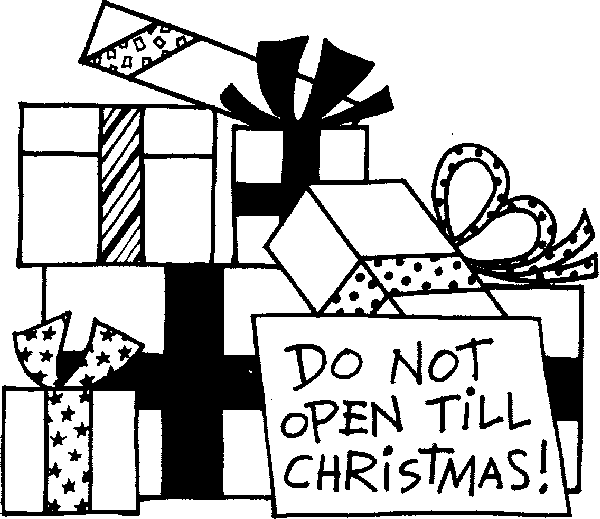Today in Freelance Fingerprints
Hard to Change? by: Miami Phillips
How many times in the past have you tried to change something about you?
Have you read an article discussing the benefits of time management and made a promise to your Self to follow the steps? Or, maybe the last seminar or teleclass you attended had some great ideas for changing your financial standing. Writing a book? Losing some weight? Self improvement?
How far did you get?
Don't worry, you are not alone. Most of us at one point or another decide to do something for ourselves or someone else. We have the best intentions in mind. We might even make some changes towards our goals, and go so far as to take some action steps. Have you ever bought an exercise machine? Yes, me too.
To read more please go Freelance Fingerprints=====================================
#Daily Writing Tip :
----------------------------
Common Writing Mistakes by Michael LaRoccaMost books aren't rejected because the stories are "bad." They're rejected because they're not "ready to read." In short, minor stuff like typos, grammar, spelling, etc.
I don't mean places where we, as authors, deliberately break the rules. Those are fine. They're our job. Language always changes with use, and we can help it on its way. No, I'm referring to places where someone just plain didn't learn the rule or got confused or overlooked it during the self-edits.
I've been editing novels since early 2000. Looking back at my experiences, I feel like sharing the most common mistakes I've seen. If you'll go through your manuscript and fix these before you submit it to a publisher, your odds of publication will increase dramatically.
Once you've found a publisher who publishes what you write, you want to present yourself in the best way possible. Submitting an unedited manuscript is a bit like going to a job interview wearing a purple Mohawk, no shoes, torn jeans, and a T-shirt. Your resume may be perfect, and your qualifications impeccable, but something tells me you won't get the job.
The publisher's investing a lot in every book it accepts. E-publishers tend to invest loads of time, and print publishers tend to invest an advertising budget and the cost of carrying inventory. Why ask them to invest hours and days of editing time as well? If the publisher gets two or three or ten nearly identical submissions, you want yours to be the one requiring the least editing.
The first thing you need to do, and I hope you've already done it, is use the spelling and grammar checkers in your word processor. They're not perfect, but they'll catch many of the "common mistakes" on my list. I've been asked to edit many books where the author obviously didn't do this, and I confess that I may have been lazy and let a couple of mine get to my editors unchecked. Bad Michael!
Here's a list of the mistakes I see most often:
Dialogue where everyone speaks in perfect English and never violates any of the points below. Okay, I made that up. That's not really a common problem at all. But I have seen it, and it's a terrible thing.
It's is a contraction for "it is" and its is possessive.
Who's is a contraction for "who is" and whose is possessive.
You're is a contraction for "you are" and your is possessive.
They're is a contraction for "they are," there is a place, their is possessive.
There's is a contraction for "there is" and theirs is possessive.
If you've been paying attention to the above examples, you've noticed that possessive pronouns never use apostrophes. Its, whose, your, yours, their, theirs...
Let's is a contraction for "let us."
When making a word plural by adding an s, don't use an apostrophe. (The cats are asleep.)
When making a word possessive by adding an s, use an apostrophe. (The cat's bowl is empty.)
A bath is a noun, what you take. Bathe is a verb, the action you do when taking or giving a bath.
A breath is a noun, what you take. Breathe is a verb, the action you do when taking a breath.
You wear clothes. When you put them on, you clothe yourself. They are made of cloth.
Whenever you read a sentence with the word "that," ask yourself if you can delete that word and still achieve clarity. If so, kill it. The same can be said of all sentences. If you can delete a word without changing the meaning or sacrificing clarity, do it. "And then" is a phrase worth using your word processor's search feature to look for.
Keep an eye on verb tenses. "He pulled the pin and throws the grenade" is not a good sentence.
Keep an eye on making everything agree regarding singular and plural. "My cat and my wife is sleeping," "My cat sleep on the sofa," and "My wife is a beautiful women" are not good sentences. (I exaggerate in these examples, but you know what I mean.)
I and me, he and him, etc. I hope no editor is rejecting any novels for this one, because I suspect that most people get confused at times. In dialogue, do whatever the heck you want because it sounds more "natural." But for the sake of your narrative, I'll try to explain the rule and the cheat. The rule involves knowing whether your pronoun is the subject or object. When Jim Morrison of The Doors sings, "til the stars fall from the sky for you and I," he's making a good rhyme but he's using bad grammar. According to the rule, "you and I" is the object of the preposition "for," thus it should be "for you and me." The cheat involves pretending "you and" isn't there, and just instinctively knowing "for I" just doesn't sound right. (I think only native English speakers can use my cheat. For the record, I have great admiration for anyone who's writing in a language that isn't their native tongue.)
Should of, would of, could of. This one can make me throw things. It's wrong! What you mean is should have, would have, could have. Or maybe you mean the contractions. Should've, would've, could've. And maybe 've sounds a bit like of. But it's not! Of is not a verb. Not now, not ever.
More, shorter sentences are better. Always. Don't ask a single sentence to do too much work or advance the action too much, because then you've got lots of words scattered about like "that" and "however" and "because" and "or" and "as" and "and" and "while," much like this rather pathetic excuse for a sentence right here.
On a similar (exaggerated) note: "He laughed a wicked laugh as he kicked Ralphie in the face while he aimed the gun at Lerod and pulled the trigger and then laughed maniacally as Lerod twisted in agony because of the bullet that burned through his face and splattered his brains against the wall and made the wall look like an overcooked lasagne or an abstract painting." Now tell me this sentence isn't trying to do too much.
Too means also or very, two is a number, to is a preposition.
He said/she said. Use those only when necessary to establish who's speaking. They distract the reader, pulling him out of the story and saying, "Hey look, you're reading a book." Ideally, within the context of the dialogue, we know who's talking just by the style or the ideas. When a new speaker arrives on the scene, identify him or her immediately. Beyond that, keep it to a minimum. I don't mean delete them all, because it's really frustrating counting backward to see who is speaking because you forgot. Just don't go overboard with them. Oh yeah, and give every speaker his/her own paragraph.
Billy-Bob smiled his most winning smile and said, "What's a nice girl like you doing in a place like this?" I don't like this. Use two shorter sentences in the same paragraph. Billy-Bob smiled his most winning smile. "What's a nice girl like you doing in a place like this?" Same effect, fewer words, no dialogue tag (he said).
In the previous example, I don't like "smiled his most winning smile," because it's redundant, but I'd probably let it slide. But please, if you find yourself writing something like that, try to find a better way to express it before you just give up and leave it like it is. During the self-edit, I mean, not during the initial writing.
"The glow-in-the-dark poster of Jesus glowed in the dark." This editor won't let that one go. Much too redundant, and it appeared in a published novel.
Lie is what you do when you lie down on the bed, lay is what you do to another object that you lay on the table. Just to confuse matters, the past tense of lie is lay. Whenever I hit a lay/lie word in reading, I stop and think. Do that when you self-edit. (Note: Don't fix this one in dialogue unless your character is quite well-educated, because most people say it wrong. I do.)
Beware of the dangling modifier. "Rushing into the room, the exploding bombs dropped seven of the soldiers." Wait a minute! The bombs didn't rush into the room. The soldiers did. To get all technical about it, the first part is the "dependent clause," and it must have the same subject as the "independent clause" which follows. Otherwise it's amateur, distracting, and a real pain for your poor overworked editor.
Okay, so these are too much fun to let go. Here are a few more from http://www.uis.edu/writestuff/gaffes.htm: Just like men, heart disease is the number one killer of men in the U.S. Mixing Bowl Set designed to please a cook with round bottom for efficient beating. We will oil your sewing machine and adjust tension in your home for $10.00.
When something dark gets lighter, that is lightening. Them things that flash through the skies during a thunderstorm are called lightning bolts. No e, okay?
If you are able (many readers are not), keep an eye out for missing periods, weird commas, closing quotes, opening quotes, etc. When I read a book, be it an e-book or a printed book, I can't help but spot every single one that's missing. They slap me upside the head, which makes me a great editor but a lousy reader. If you're like me, use that to your advantage. If not, that's what editors are for.
About the AuthorWho Moved My Rice? http://www.chinarice.org You can't eat grits with chopsticks
===============================
 I wish a happy successful new your for all of you and your families , enjoy your time today for the last time this year , but remember our brothers there in Iraq because they feel very lonely without us . I hope they'll be back home in 2007 .
I wish a happy successful new your for all of you and your families , enjoy your time today for the last time this year , but remember our brothers there in Iraq because they feel very lonely without us . I hope they'll be back home in 2007 .










